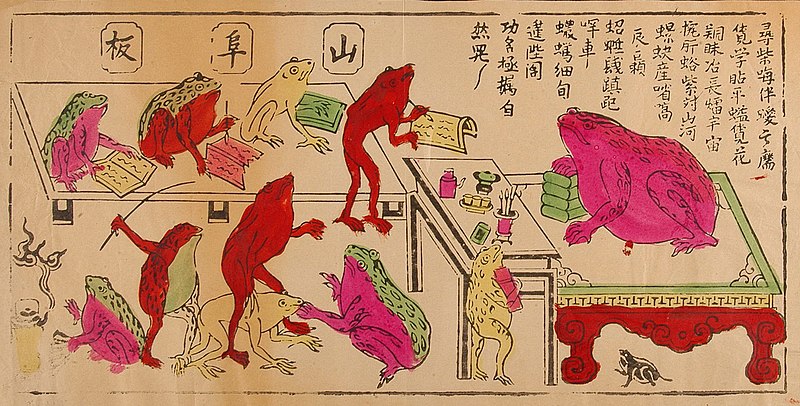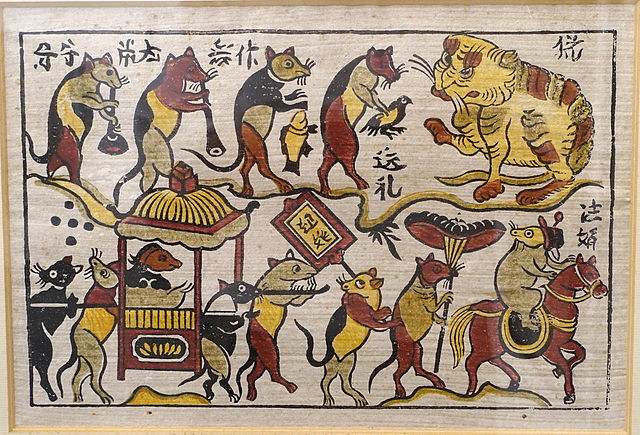Thammasat University students interested in Vietnam, ASEAN studies, economics, business, history, political science, international affairs, and related subjects may find it useful to participate in a free 24 March Zoom webinar, Capitalism with Vietnamese Characteristics? The Dilemma of Growth and Political Change.
The event, on Friday, 24 March 2023 at 9am Bangkok time, is presented by ISEAS – Yusof Ishak Institute, Singapore.
The TU Library collection includes several books about different aspects of capitalism in Vietnam.
The event webpage explains:
About the Webinar
Vietnam’s transition from a socialist to a capitalist economy has produced remarkable results, yet it has not achieved the level of success often touted. What factors have held back Vietnam’s economic potential to this day? How can a renewed understanding of Vietnam’s developmental path and its origins provide insight into its economic patterns and vulnerabilities? What can be said about the Vietnamese Communist Party’s firm control of the economy and society? This webinar examines these questions, drawing on a compilation of the latest research from both seasoned and emerging scholars of Vietnam. It will delve into the historical, institutional, and political elements that have contributed to the current dilemmas facing the country. The discussion becomes ever more salient in light of the recent political controversy and corruption scandals surrounding the government’s handling of the COVID-19 pandemic.
The speakers will be Professor Tuong Vu, who teaches political science at the University of Oregon, the United States of America (USA) and Assistant Professor Nhu Truong, who teaches politics and public Affairs at Denison University, in Granville, Ohio, USA.
The TU Library collection includes books with published research by Professor Tuong Vu.
Students are invited to register for the event at this link:
https://us06web.zoom.us/webinar/register/WN_hPpZNa_TQGuKm92nmOffjQ

Last year, Professor Tuong Vu informed an interviewer on the E-International Relations website,
- How similar are the economic policies of People’s Republic of China (PRC) and the Socialist Republic of Vietnam (SRV) and where do we see the greatest divergences? Is the SRV’s socialist-oriented market economy fundamentally different to the PRC’s socialist market economy?
The PRC and SRV have embarked on broadly similar policies to gradually abolish central planning, remove restrictions on markets from land to labor, and promote domestic and foreign trade and export. Major differences between the two can be traced to their starting point. Firstly, in China the pre-reform state was much more effective than its Vietnamese counterpart, and this has continued with the Chinese state playing a much more effective role in guiding the reform process. Among other things, state effectiveness has enabled China to more successfully promote domestic industries and technological transfers from foreign firms.
Secondly, Chinese market reform was built on a much higher level of industrial and technological development, and technocrats have had greater power in formulating economic policies in China. Vietnam has been counting much more on foreign remittance and investment, and its economy relies mostly on low-skilled labor and is far more trade-dependent.
Thirdly, due to the Sino-Soviet conflict in the 1960s-1970s, China’s socialist economy and state before reform had little or no relationship with the Soviet bloc. The Chinese were also deeply disillusioned with communism due to the Cultural Revolution. In contrast, Vietnam’s ties to the Soviet bloc during the Cold War were strong as Vietnam was heavily dependent on the bloc’s aid in the 1980s. Ideological resistance to market reform among Vietnamese leaders has been stronger than in China as a result. Although Vietnam’s reform has benefited much from southerners who had lived in a capitalist economy during the 20 years when Vietnam was divided, but northerners still control politics and do not allow faster reforms.
Finally, as a result of Vietnam’s close relations with the Soviet bloc before reform, Soviet-trained scholars still dominated Vietnamese universities until recently. In contrast, China sent thousands of students to the US after relations were normalized in the late 1970s. The educational system and especially universities in Vietnam have been modernized very slowly, leading to not only the phenomena of brain drain and “educational refugees” but also a labor force with low productivity. Vietnam faces a much greater likelihood of being trapped in the middle-income group of countries.
- Western commentators have often attributed China’s and Vietnam’s successes to market liberalisation and the embracement of capitalism while maintaining a socialist facade. Do you agree with this assessment or are they still committed to their respective forms of Marxism-Leninism?
Much depends on how one defines “success.” If it means orderly changes, yes. If it means success in the same way as South Korea and Taiwan which has undergone not only industrialization but also democratization, no. Perhaps China may be able to industrialize in the next couple of decades, but that prospect is still unthinkable for Vietnam after thirty years of reform. Furthermore, I would argue that there is much more than a socialist façade with the public ownership of land and with the state sector still under the control of the communist party and having the dominant role in the economy. The political system retains much of the Leninist state structure with overlapping and extensive bureaucracies of party, state, and mass organizations controlling not only political but also economic, social, and cultural life down to the neighborhood and village level. Loyalty to Marxism is still enforced in propaganda and education.
- To what extent have state-owned enterprises played a role in East Asian economies? State-owned enterprises have played important roles in some East Asian economies such as Taiwan and Indonesia. They play minor roles in other capitalist economies such as Malaysia and Singapore. For China and Vietnam, they still dominate the strategic sectors of the economy and enjoy substantial advantages, as vehicles for patronage and symbols of socialism. Vietnam, South Korea, Singapore, China, and Taiwan either industrialised or are industrialising under authoritarian political systems. Is an initial or permanent lack of democracy a prerequisite for their economic success?
The answer is no. Scholars have searched in vain for a systematic theoretical relationship between democracy and economic success, and the question can only be answered for specific cases. Again, much depends on how one defines “success.” There is a huge gap between the economic “success” of Vietnam and that of Singapore or South Korea. After 30 years of market reform, Vietnam’s level of development today still can’t be compared to that of South Korea in 1980, for example.
There is also a huge difference among the political systems of the above countries. South Korea and Singapore have always more or less allowed opposition parties and a private press – these regimes were/are authoritarian but their people have enjoyed far more civil liberties than the Vietnamese and Chinese have. Even though Singapore is authoritarian, the rule of law there is quite advanced, whereas it doesn’t quite exist in Vietnam today.
South Korea, Taiwan and Singapore have also not been constrained by any ideologies. Their anticommunism imposes a very narrow limit on intellectual freedom: anything is fine as long as it’s not communism (and Islamism for Singapore). For Vietnam, in contrast, no ideology is acceptable except communism, at least in public. Vietnam is not just an authoritarian but a monotheist theocracy in this sense. I know doctoral students from Vietnam who received funding from US universities have turned them down if they also received government funding: the latter would require them to return to Vietnam, but if they return, they would not be treated with suspicion as those who were funded by US universities. I would argue that this monotheist-theocratic aspect has seriously limited Vietnam’s potential to be like South Korea.
(All images courtesy of Wikimedia Commons)


